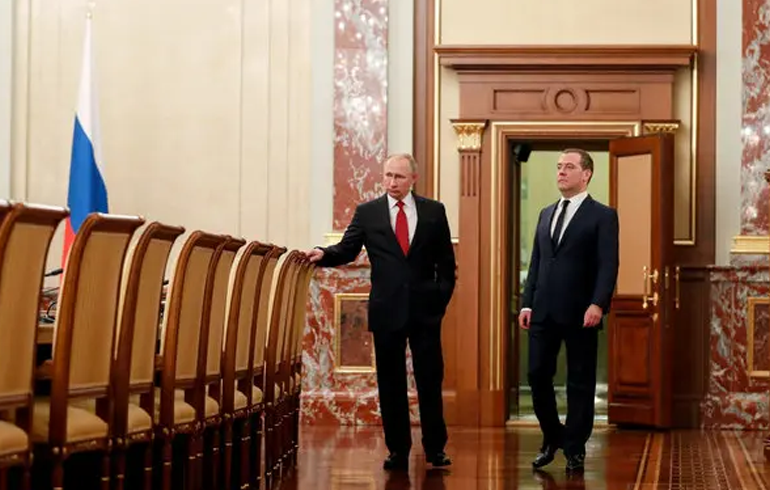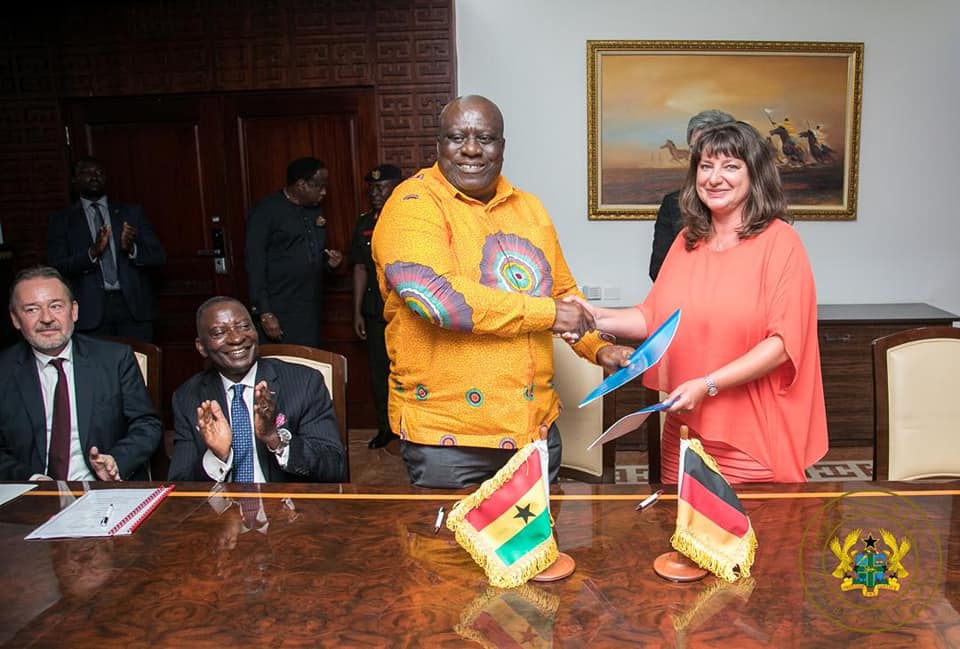Russia’s government has resigned, hours after President Vladimir Putin proposed sweeping constitutional changes that could prolong his stay in power.
PM Dmitry Medvedev said the president’s proposals would significantly change Russia’s balance of power.
Mr Putin asked Mr Medvedev to become deputy head of the National Security Council, which is chaired by Mr Putin.
The unexpected announcement comes four years before Mr Putin’s fourth term of office is due to end.
Under the existing constitution he would not be entitled to another term and the Russian leader said during his speech to both chambers of parliament that there would be a nationwide vote on changes that would shift power from the presidency to parliament.
Russian government sources told the BBC that ministers did not know about the government’s resignation ahead of the announcement.
“It was a complete surprise,” one source said.
Mr Medvedev has been prime minister for several years. He previously served as president from 2008-2012, switching roles with Mr Putin – a close ally – after the latter served his first two terms as president.
Russia’s constitution only allows presidents to serve two consecutive terms.
Even when he was prime minister, Mr Putin was widely seen as the power behind then President Medvedev.
“These changes, when they are adopted… will introduce substantial changes not only to an entire range of articles of the constitution, but also to the entire balance of power, the power of the executive, the power of the legislature, the power of judiciary,” Mr Medvedev said of Mr Putin’s proposals.
“In this context… the government in its current form has resigned.”
Mr Medvedev made his announcement on state television with President Putin sitting next to him. Mr Putin thanked Mr Medvedev for his work but said “not everything” had been accomplished.
BBC Moscow correspondent Sarah Rainsford said the reason why Mr Putin had removed Mr Medvedev was unclear.
The outgoing government will remain in situ until the new one is appointed although a new prime minister to replace Mr Medvedev must be appointed within two weeks.
Correspondents say possible candidates to succeed Mr Medvedev include Economy Minister Maxim Oreshkin, Mayor of Moscow Sergei Sobyanin and Energy Minister Alexander Novak.
What else did Mr Putin say?
In his address to parliament, the president unveiled a series of plans to increase the number of children being born in Russia. Like several other eastern European states, Russia has been struggling with a declining birth rate.
Last year Mr Putin promised tax breaks for bigger families.
On Wednesday he pledged state funding for new mothers in a bid to increase the number of children being born from an average of fewer than 1.5 per woman to 1.7 within four years.
So-called “maternity capital” has until now only been paid to families with at least two children.
Welfare benefits will also be paid for children aged three to seven in low-income families, and free school meals will be provided for the first four years of school.
Russia’s population has struggled to recover from a dramatic decline in the 1990s.
Source: BBC




















































